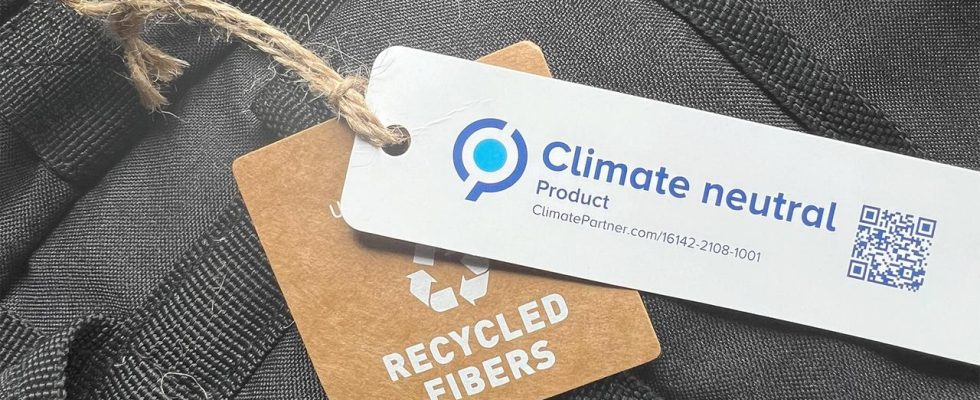When companies advertise “climate-neutral” products, they often don’t mean the manufacturing process. Instead, the manufacturers compensate for the CO2 emissions, for example through reforestation. Is such advertising still legal?
When customers stand in front of the supermarket shelves, many questions run through their heads: do we still have ketchup in the fridge? How many carrots do we need for the vegetable casserole? Has butter gotten more expensive again? Thinking about the exact definition of the term “climate neutrality” is rarely on the agenda.
CO2 emissions are subsequently compensated
The Düsseldorf Higher Regional Court believes that consumers are capable of precisely this kind of thought, as a judgment today shows. The central competition office – an association that claims to be fighting unfair competition – had sued the jam manufacturer Mühlhäuser, who had described its product as “climate-neutral”.
The court ruled that when a product is advertised with this keyword, the average consumer knows how to understand it. This usually does not mean that no CO2 is emitted during the manufacturing process. Instead, it is about compensatory measures, for example financial support for reforestation.
According to the court, consumers are aware of this, if only because “goods and services are also advertised as climate-neutral which – such as air travel – cannot be provided emission-free.”
competition headquarters had complained
The central competition office sees things differently and finds this type of advertising misleading. Consumers are used to buzzwords like “reduced sugar” and therefore also understand the term “climate neutral” as a specific product characteristic.
The fact that the court did not follow this argument only helped the manufacturer to a limited extent. The Higher Regional Court nevertheless agreed with the central competition office in part, because the company had not informed consumers about exactly how the jam was made climate-neutral. Precisely because consumers are familiar with the concept of compensation payments, the court finds that there is “an interest in clarifying the basic circumstances of the climate neutrality claimed by a company”.
Appropriately, the Düsseldorf Higher Regional Court dismissed the complaint brought by the central competition office against another manufacturer. Katjes had also advertised its fruit gums as “climate neutral” in a trade journal. However, next to the advertising promise there was a QR code with which the readers could go to a website with further information. In the opinion of the court, consumers were thus sufficiently informed.
individual decisions through courts
These details show how fragmented the decisions on advertising with “climate neutrality” are. “So far, there has been no supreme court ruling from the Federal Court of Justice on the subject,” says Malte Drouet, an expert in competition law at the University of Osnabrück: “However, the courts tend to assume that the term ‘climate-neutral’ refers to the balance sheet balance “, i.e. on compensation, for example through the purchase of certificates.
Drouet does not believe that a change in the law that could provide more clarity is necessary: ”These are often specific individual cases that courts have to judge individually.” The Federation of German Consumers, on the other hand, calls for a general ban on advertising with the term “climate-neutral”. For consumers, it is unclear how reliably emissions can be offset by offsetting measures.
In the two cases decided by the Düsseldorf Higher Regional Court, the parties have the option of applying for an appeal at the Federal Court of Justice.

